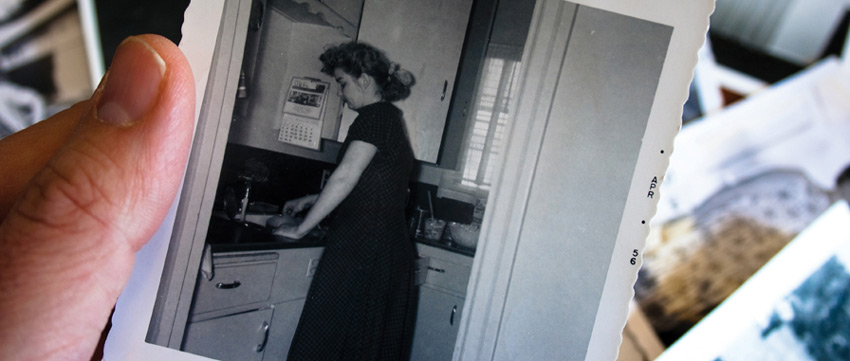
The stories that leave an impact often do so because they focus on the concrete rather than the abstract. A story that begins with a specific moment will always be more effective: When my grandmother finally figured out a way to escape from the Minsk ghetto after two years of trying, her grandfather fell ill. Escaping meant having to leave him behind.
Perhaps a story like that can cause distress to too young a mind, but it also activates empathy, reflection, and consideration in a way that abstract platitudes about suffering can’t. And we must try to activate those feelings in our young people — their feet will walk the ground in a different way when they know what those who came before them experienced.
In my case, it happened one day in 1996, when my mother explained that my Soviet-Jewish émigré family needed the English writing skills that only I, its youngest member, possessed. My grandmother, a Holocaust survivor, had been authorized to receive reparations from Germany. My mother wanted me to write down the story of what my grandmother went through in a way that would give the people in charge — the people with the power — no reason to turn her down.
When I had been a boy, there was nothing I wanted to know more than what my grandmother had gone through during the war. But my grandmother did not want to talk about it, and she had made it clear that I would pain her if I persisted in asking. But now my mother was asking me to make my grandmother talk — though not because my family understood the value of passing down that kind of knowledge. Because I was the only one who could help.
Over the next several weeks, I took down my grandmother’s stories — the Minsk ghetto, her escape, 10 months in the forests and swamps with the partisans, returning to Minsk to find out she was an orphan. It was too hard for her to sit at a table and think of nothing else while telling these stories, so we did it in the kitchen while she cooked one of the many legendary family dishes that we all revered — and for which none of us wrote down the recipe before she died. (Again: stories. I recreated some of the dishes in my recent memoir, Savage Feast, a family history told through recipes.)
My grandmother received reparations for the rest of her life. But that wasn’t the most important outcome — at least not for me. Through her stories, my grandmother became a friend — someone I not only respected, but liked; someone I wished to not only honor, but think about. Without her stories, I wouldn’t have had the inspiration to write my first novel, A Replacement Life. I would not have the history to pass on to my half-Russian daughter.
I invite and urge you to ask your community elders about their stories, and then share them with the young people around you. This is particularly critical for Jews, because even the safest among us have not been safe for very long. If my young daughter Agnes — who will contend with a world defined by climate change, artificial intelligence, and new conflicts — can hope to learn anything about strength and courage from those who preceded her, it will be because my grandmother shared her story.
We are exceptionally fortunate to have meaningful stories about Jewish identity and experience arrive on our doorsteps every month, courtesy of PJ Library. But storytelling is not the rarefied privilege of a specialized caste; it is something all of us do without noticing. If you’ve ever caught up with a friend or told a joke, you’ve done it.
How can you share your family’s stories?
Begin with the most forgiving of gateway storytelling occasions, the same one that helped me and my grandmother: food. Pick an old family recipe. Between your own recollections and those of other family members (and maybe a little background reading in history and cookbooks), take advantage of a pause during your next extended family dinner, even if it takes place over Zoom, and say: You know, in the Soviet Union, they used to make stuffed cabbage very differently from the way that we do here in America. In the Soviet Union, they didn’t have all the ingredients that we have here, and so they had to get a little creative. Can you imagine stuffed cabbage stewed in torn-up rye bread and sour cherry jam? I need someone to help me write down the story. …